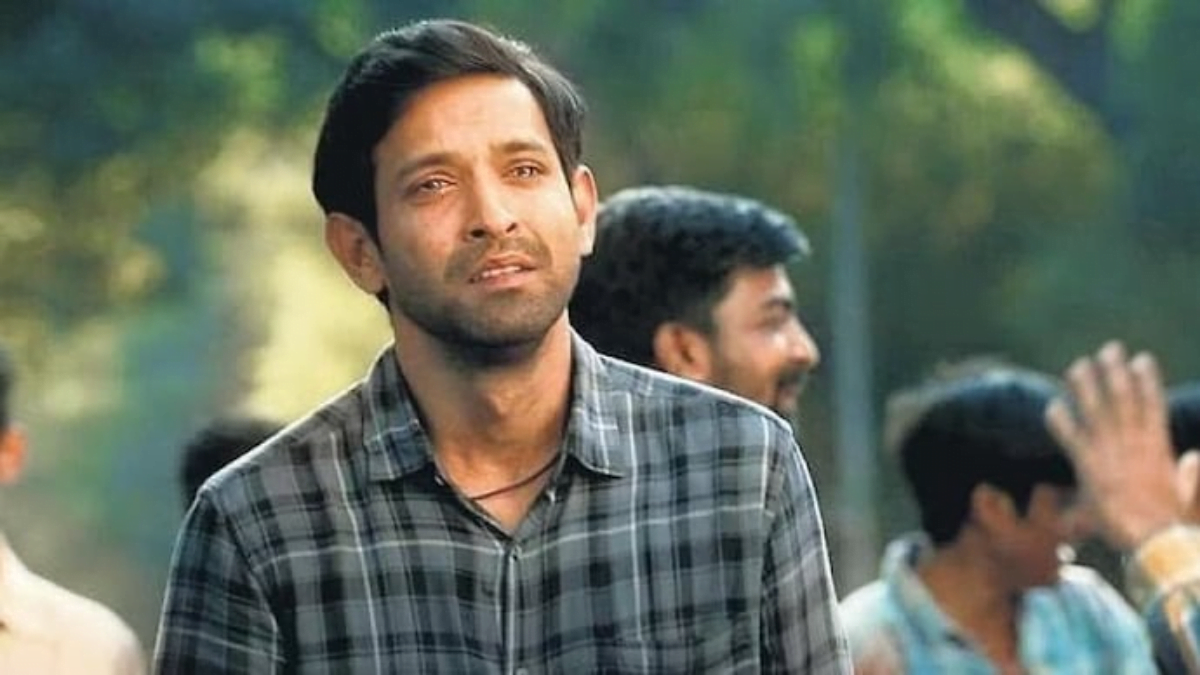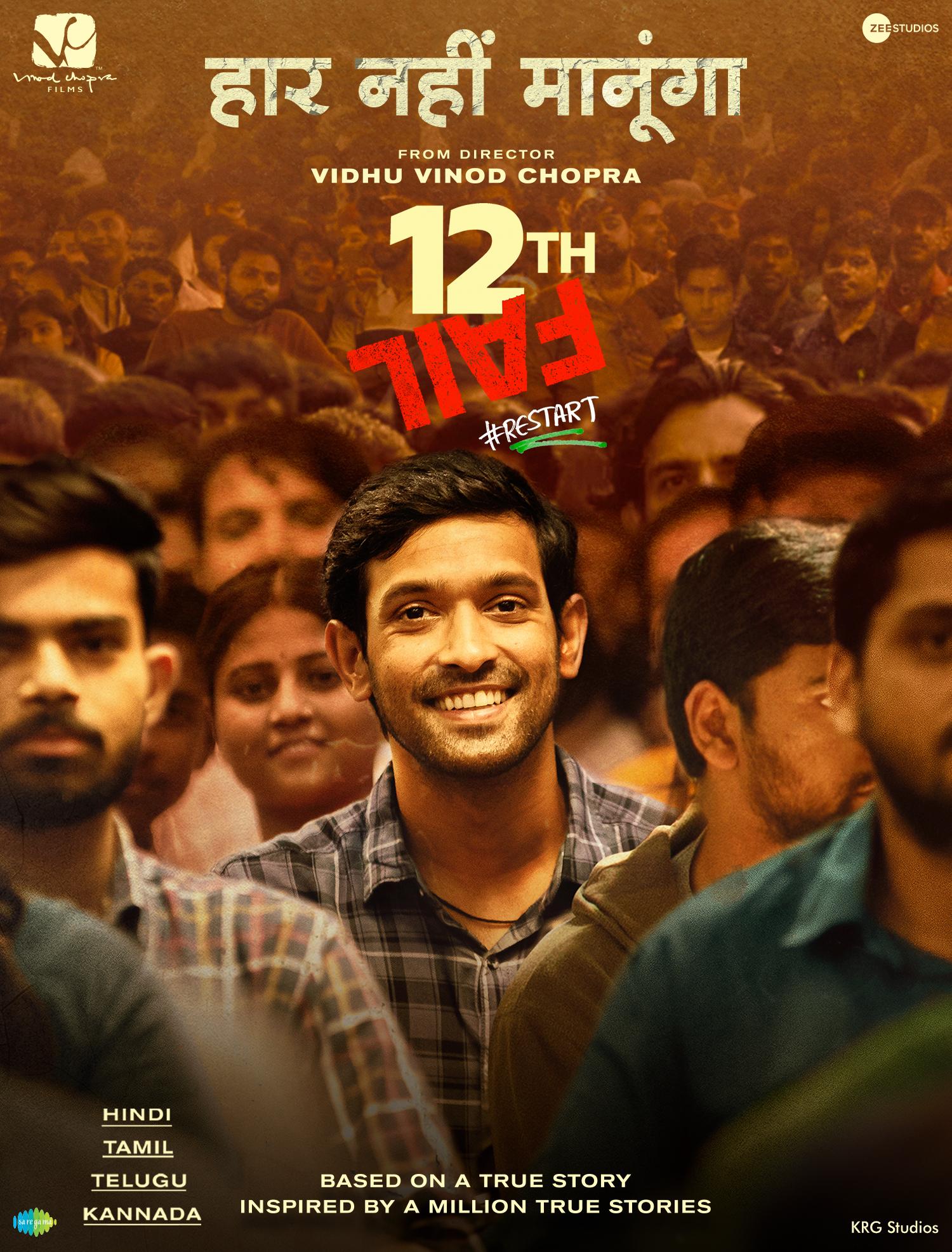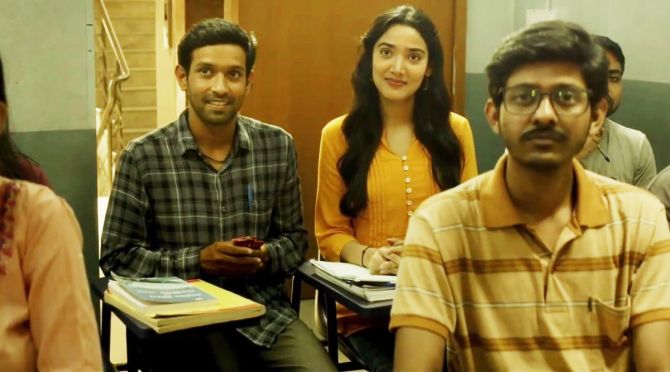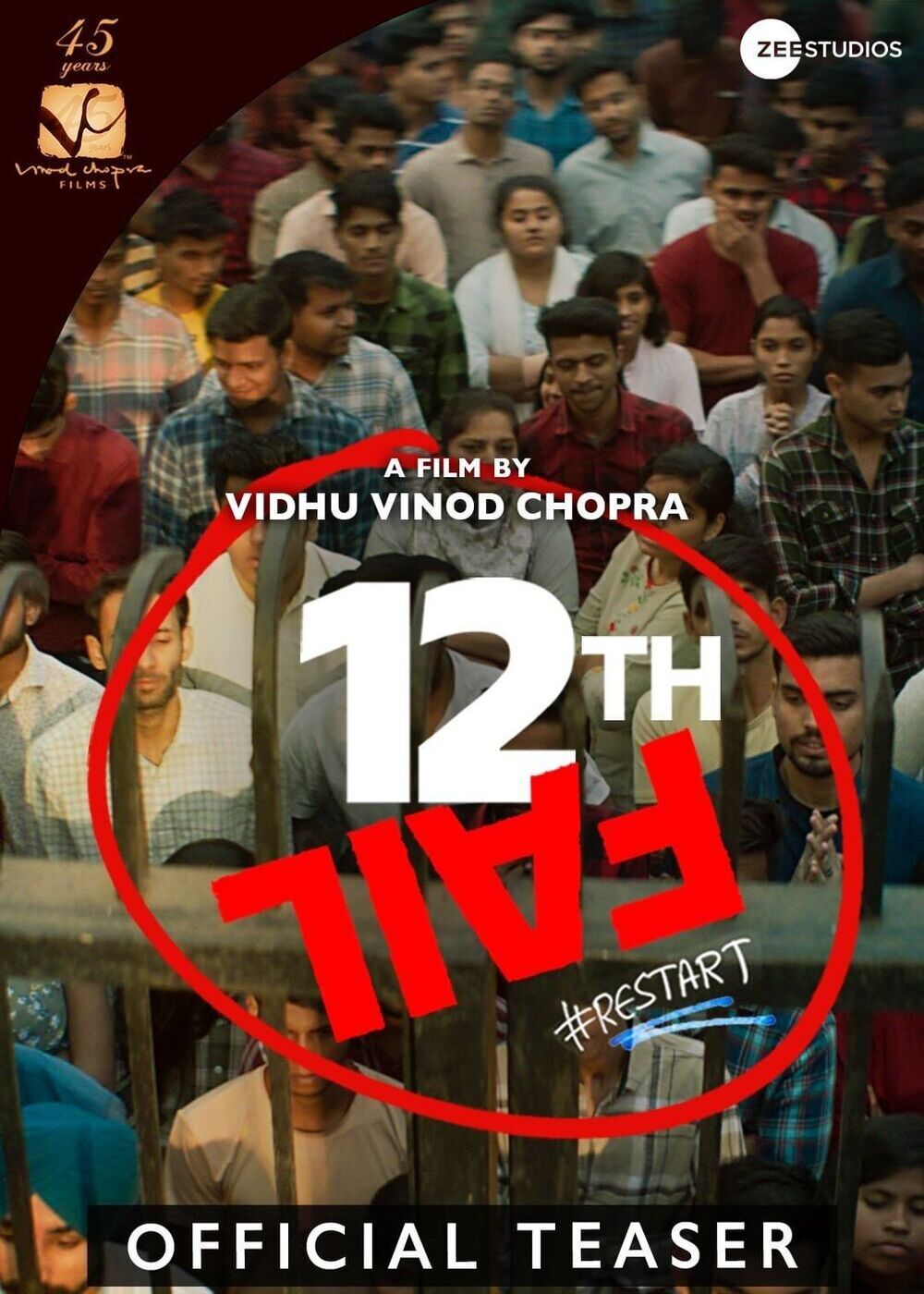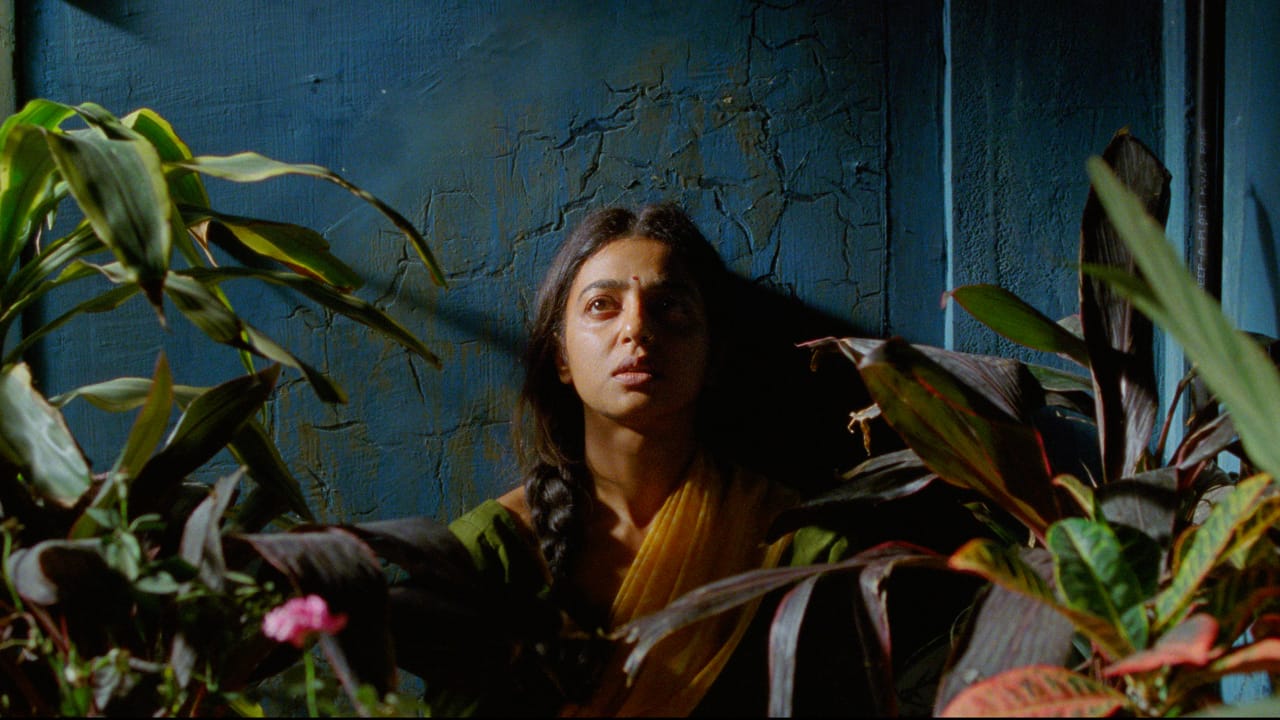In the cacophony of contemporary cinema, where moral narratives often resemble a game of chance, Vidhu Vinod Chopra’s 12th Fail emerges as a beacon of inspiration, shedding light on probity in both public and private spheres. As the director returns to the cinematic stage, he weaves a compelling tale of hope and resilience, celebrating the triumph of an endangered archetype – the worthy son of the soil. This review navigates through the film’s portrayal of poverty, corruption, and the pursuit of justice, examining its didactic tone and occasionally overstated treatment.
Mapping humanity in the didactic landscape of 12th Fail
Chopra’s storytelling prowess, previously showcased in productions like Munna Bhai M.B.B.S. and 3 Idiots, finds a spiritual cousin in 12th Fail. The film deviates from Chopra’s usual repertoire, carving a distinct space in mainstream cinema.
As we delve into the real-life story of IPS Officer Manoj Kumar Sharma and IRS Officer Shraddha Joshi, adapted from Anurag Pathak’s book, the didactic tone becomes evident.
As we delve into the real-life story of IPS Officer Manoj Kumar Sharma and IRS Officer Shraddha Joshi, adapted from Anurag Pathak’s book, the didactic tone becomes evident. The narrative underscores the enduring question of what it takes for an individual to break through class divides in a country where systemic challenges persist.
The art of characterisation: Vikrant Massey’s challenge in Manoj’s struggle
Vikrant Massey’s portrayal of Manoj Kumar Sharma in 12th Fail stands out as a testament to his acting prowess. While Massey’s performance is undoubtedly polished and meticulous, the film’s peculiar choice of using Anant V Joshi’s voice-over throughout dilutes the dramatic impact. The film unfolds the life of Manoj Kumar Sharma, a resilient character navigating the complexities of Chambal.
From resisting the allure of the gun to embracing the power of the pen, Manoj’s journey echoes the societal challenges, discrimination, and dehumanisation prevalent in his surroundings. Chopra perceptively captures the pervasive issues of cheating mafias and the sluggish wheels of justice, revealing the everyday struggles that propel the underprivileged toward positions of power.
The pen vs. gun against the socioeconomic palette of Chambal to Gwalior and beyond
Vidhu Vinod Chopra’s 12th Fail transcends mere storytelling, unravelling the intricacies of socioeconomic landscapes. The film’s canvas extends from the rustic terrains of Chambal to the bustling corridors of Gwalior, exploring the persistent struggle against corruption and the enduring pursuit of justice. As Manoj Kumar Sharma’s pen becomes a weapon against societal prejudices, the film mirrors the real-life battles waged by those seeking to break free from the shackles of poverty.
Chopra’s lens captures the poignant dichotomy of power through Manoj’s choice of the pen over the gun. In a landscape where the gun symbolises control and authority, Manoj’s decision challenges stereotypes associated with his background. This choice becomes a symbolic rebellion against the systemic oppression faced by the underprivileged, echoing a larger narrative of dignity, empowerment, and justice.
Anant V Joshi’s voiceover amidst the monologues and expositions proves to be a narrative double-edged sword
12th Fail navigates a fine line between monologues that breathe life into characters and expositions that potentially dilute their depth. The film’s inclination to introduce characters based on their righteousness sets a tone, but a deeper exploration of their flaws could elevate the narrative. The film’s choice to employ Anant V Joshi’s voiceover from start to finish presents a narrative paradox.
While the voiceover serves as a guide through Manoj’s journey, it occasionally dilutes the raw emotion and dramatic impact of the unfolding tale.
While the voiceover serves as a guide through Manoj’s journey, it occasionally dilutes the raw emotion and dramatic impact of the unfolding tale. The delicate balance between elucidation and immersion becomes crucial, begging the question: does constant narration enhance or diminish the viewer’s connection with the characters?
Post-colonial allegories: UPSC as a microcosm in 12th Fail
Chopra’s lens unveils a post-colonial reality, particularly through the portrayal of the Union Public Service Commission in 12th Fail. The film exposes the colonial hangover, echoing bias against candidates from vernacular backgrounds. The inclusion of Atal Bihari Vajpayee’s poem adds lyrical weight, symbolising both the optimism and resilience of Manoj Kumar Sharma. Within the cinematic corridors of the Union Public Service Commission, 12th Fail unravels post-colonial allegories.
The film exposes a colonial hangover that permeates bias against vernacular candidates, echoing a broader societal struggle against deeply ingrained prejudices. Atal Bihari Vajpayee’s poem serves as a lyrical beacon, symbolising not only Manoj’s resilience but also the collective optimism needed to dismantle systemic barriers.
Feminist glimpses: the rushed love story
While the love story between Manoj and Shraddha carries glimpses of feminist themes, its rushed nature leaves room for further exploration. Chopra’s exploration of poverty, corruption, and the pursuit of justice forms the heart of 12th Fail. There is little space left for a woman in a man’s struggle. Like most Hindi cinema films, Medha Shankar’s Shraddha ends up being the woman behind the man.
The film sensitively portrays the challenges faced by Manoj’s family, providing a lens into the resilience required to navigate a society fraught with injustice, yes. It does, however, fail to prompt an introspection within the cinematic tropes amplifying underprivileged voices, such as the women, as there is no other gender representation.
The interaction between Shraddha and the other characters also offers a subtle commentary on autonomy, but the film could delve deeper into challenging societal norms surrounding women’s choices.
The interaction between Shraddha and the other characters also offers a subtle commentary on autonomy, but the film could delve deeper into challenging societal norms surrounding women’s choices. There were good options for a filmmaker such as Chopra to give some screen time to women. Manoj’s mother is doing mazdoori if she is not shouting; his grandmother is giving him money when she is not telling him to randomly shoot people; his sister is holding down the house as she grows up, probably putting her education aside helping the bhaiya in Dilli become an IPS officer.
Medha Shankar does her absolute best with what she is provided, more so in lending her own voice to the singing parts joining the ranks of Priyanka Chopra and Alia Bhatt. Yet, women are still in a man’s world here, no matter how much you relate with the man’s struggle. It invites contemplation on how cinema can contribute to dismantling gendered expectations and fostering nuanced narratives.
Dalit struggles: beyond symbolism
The film very minutely addresses the Dalit struggle through Anshuman Pushkar’s character. By choosing the pen over the gun, Gauri challenges the stereotypes associated with his background, embodying the fight for dignity and justice. However, the film could delve deeper into the systemic issues that contribute to the underprivileged’s struggle against discrimination.
12th Fail indirectly addresses Dalit struggles through Manoj’s journey, which wasn’t exactly his to begin with. His refusal to pick up the gun challenging stereotypes associated with his background may give a glimpse of resistance but we could have used Gauri’s character to be more than just a helper to the general caste kid.
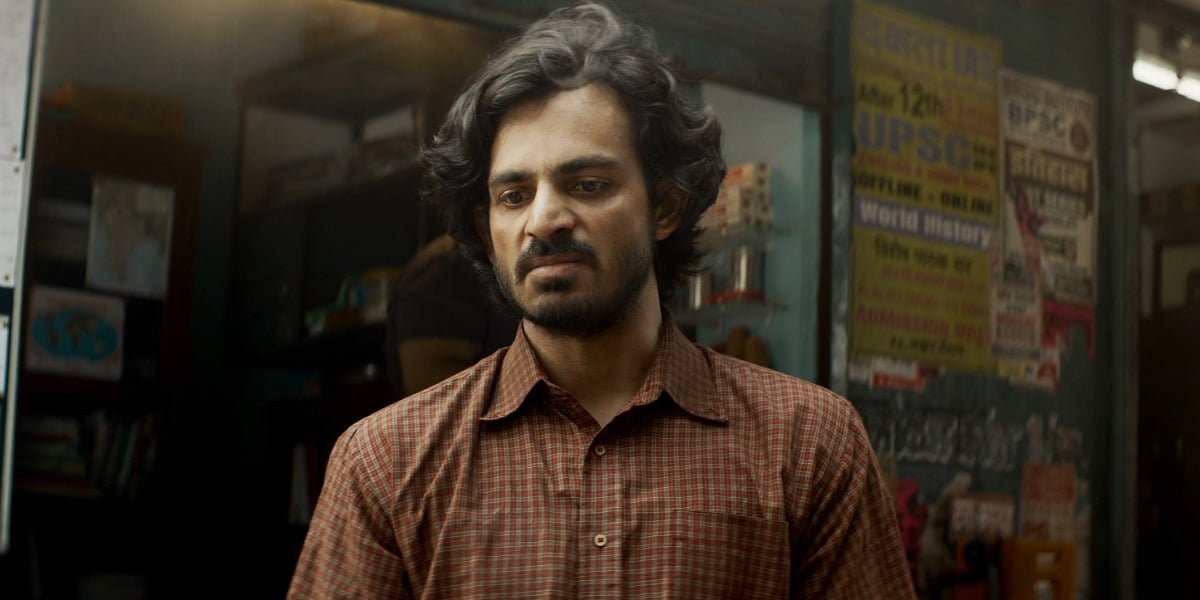
The film’s potential to delve deeper into systemic issues that contribute to the underprivileged’s fight against discrimination remains underexplored. A more nuanced exploration could contribute to a richer narrative that transcends symbolism.
Beyond the frames: 12th Fail is a cinematic tapestry worthy of reflection
12th Fail emerges not just as a film but as a cinematic tapestry that weaves together threads of struggle, triumph, and societal complexities. Vidhu Vinod Chopra’s departure from the conventional adds layers to an inspirational saga that navigates post-colonial, feminist, Dalit, and underprivileged perspectives. As the credits roll, 12th Fail invites reflection on the power of cinema to dismantle stereotypes, challenge systemic biases, and celebrate the indomitable spirit of the human journey. It stands as a testament to storytelling’s potential to transcend frames, leaving an indelible mark on the viewer’s consciousness.
About the author(s)
Harshi is a writer and LGBTQ+ rights activist. She is also a self-identified singer. Her preferred pronouns are she/they and she identifies as a Non Binary Transwomxn. Raised to be someone who should just accept the norm , she has spent the last decade reading and writing about eccentric people and their experiences around her. Harshi has completed B.A.(HONS.) English from the University of Delhi and M.A. in English from Amity University. She cautions anyone who is thinking of doing the same. She thinks she is a realist, she still hopes to see some good change in the history of Human Rights in her country with a little contribution from her writing and activism. You can find her on Instagram- iamharshib.
